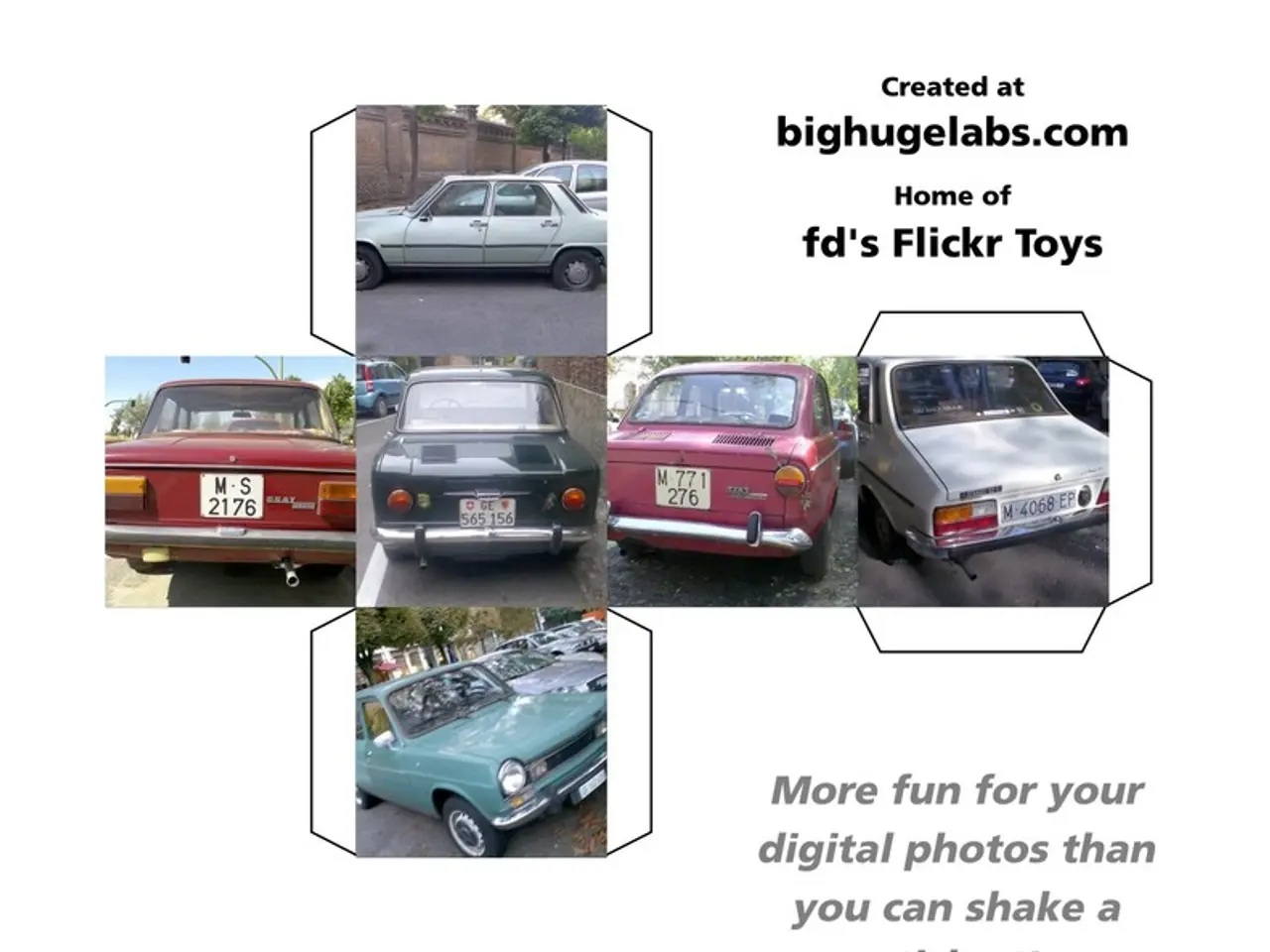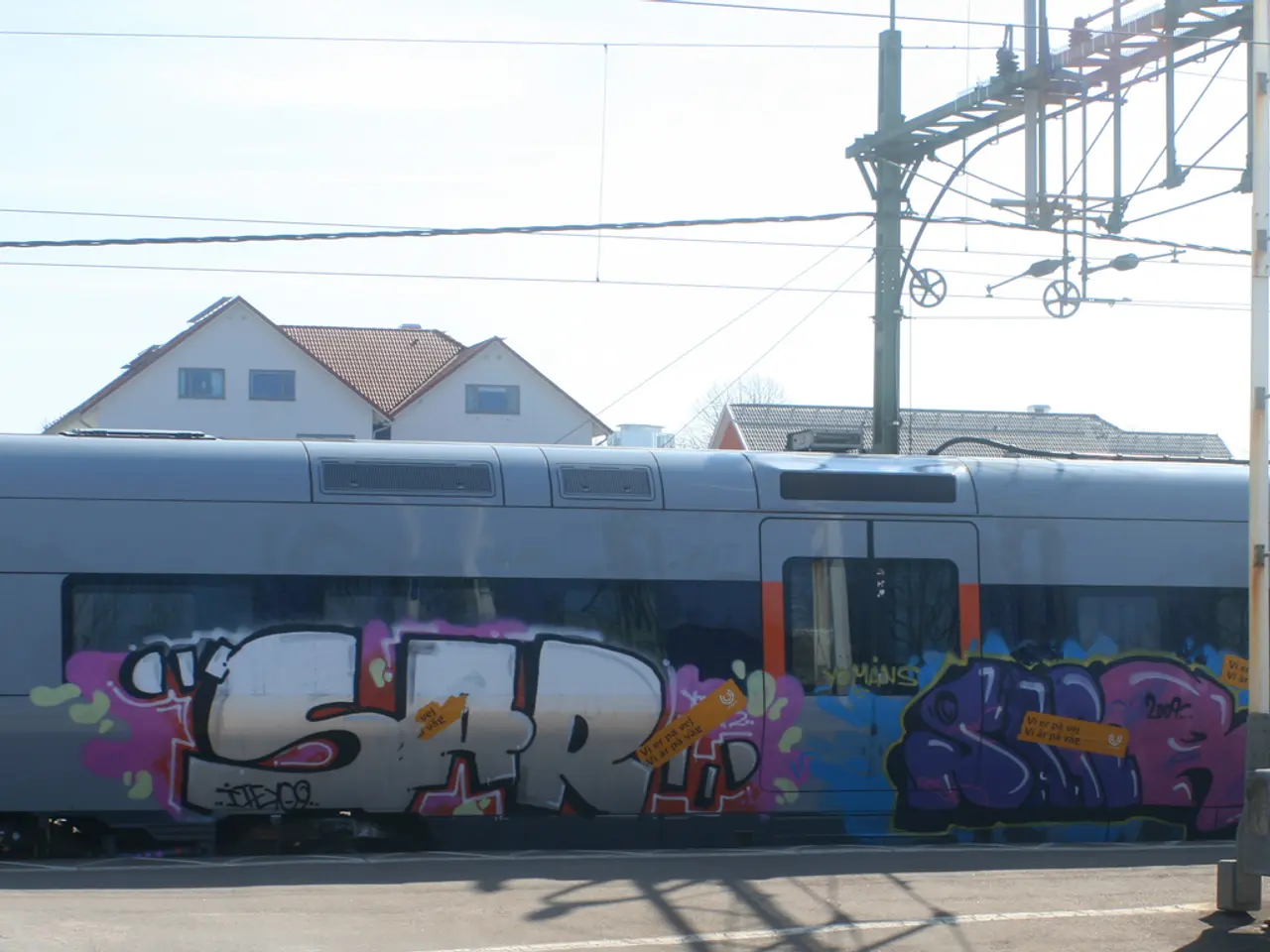U.S. and EU reach consensus on implementing a 15% standard tariff in a customs disagreement
Headline: German Automakers Brace for Billions in Annual Costs as New US-EU Auto Tariff Takes Effect
The European auto industry, including heavyweight players like Volkswagen, faces a significant cost burden with the implementation of a new 15% tariff on car exports to the United States. This tariff, a moderation from the previously threatened 25-30%, still poses a substantial challenge for European manufacturers as they navigate the transition towards producing more electric vehicles (EVs) and plug-in hybrids.
The German Association of the Automotive Industry (VDA) has expressed support for the framework agreement announced by Ursula von der Leyen and Donald Trump, but they warn that this tariff will still severely impact German makers financially. For Volkswagen and other German manufacturers, this tariff is expected to increase expenses by billions annually, impacting their profitability as they shift towards producing more expensive EVs and battery-electric vehicles (BEVs).
One of the key implications for Volkswagen and European car manufacturers is the higher cost on exports to the US. Although the 15% rate is an improvement over the previously threatened 25-30% tariffs, it still increases the final cost of European cars in the US market, potentially affecting sales volumes and pricing competitiveness.
Another challenge lies in the pressure during the electrification transition. Volkswagen and other German automakers are launching new electric and hybrid models, and the tariff adds further cost pressures on these pricier models, which could hamper their market penetration in the important US market.
The tariff agreement also complicates the supply chain, especially given the interconnected automotive parts production within the USMCA region (United States, Mexico, Canada). European suppliers who operate across these borders may face heavy 25% tariffs on parts if they lack sufficient North American content, adding regulatory and financial complexity.
Moreover, the tariff ceiling applies broadly to cars and parts, meaning European manufacturers, including Volkswagen, face a tariff that US or some other global competitors might not. This might reduce EU automakers’ competitive edge in the US.
Prior to this agreement, European car manufacturers exporting to the USA had to pay a 25% tariff, regardless of the vehicle's powertrain. However, the EU and the USA have now agreed on a new base tariff rate of 15% for most EU imports into the USA, which includes cars. This agreement covers trade goods worth $1.7 trillion annually between the two largest economies in the world, forming a market of 800 million people and accounting for nearly 44% of global GDP.
Ursula von der Leyen, the EU Commission President, stated that this agreement brings security in uncertain times and provides stability and predictability for citizens and businesses on both sides of the Atlantic. German Chancellor Friedrich Merz also welcomed the agreement, stating it averts a trade conflict that would have hit Germany's export-oriented economy and its large automotive sector.
Despite some US production, Europe's largest carmaker, Volkswagen Group, still ships many models from its home market, which will continue to be subject to the new, albeit reduced, tariffs. The distorted and restricted automotive supply chains disrupted by the trade dispute need to function again, particularly for the North America supply chain within the USMCA agreement.
However, not everyone is satisfied with the agreement. The Federation of German Industries (BDI) considers the agreement an insufficient compromise and a fatal signal. Wolfgang Niedermark from BDI states that the only positive aspect is that a further escalation spiral has been averted for the time being. The BDI urges the EU to shape the framework conditions in Europe to remain competitive and attractive for investors.
In summary, the 15% tariff imposes a costly but somewhat moderated barrier for Volkswagen and other European automakers exporting to the US, demanding strategic adjustments in pricing, supply chain management, and product development to maintain competitiveness amid evolving trade and automotive industry dynamics.
[1] Automotive News Europe [2] Reuters [3] Bloomberg [4] The New York Times
- The tariff on car exports to the United States impacts not only the European auto industry, but also the finance and business operations of German manufacturers like Volkswagen, as they are expected to incur billions in added annual expenses due to this new 15% tariff.
- The implementation of the new US-EU auto tariff poses a significant challenge for German automakers, such as Volkswagen, not just in terms of their production transition towards electric vehicles (EVs) and plug-in hybrids, but also in their financing and overall business strategy within the competitive global market.




